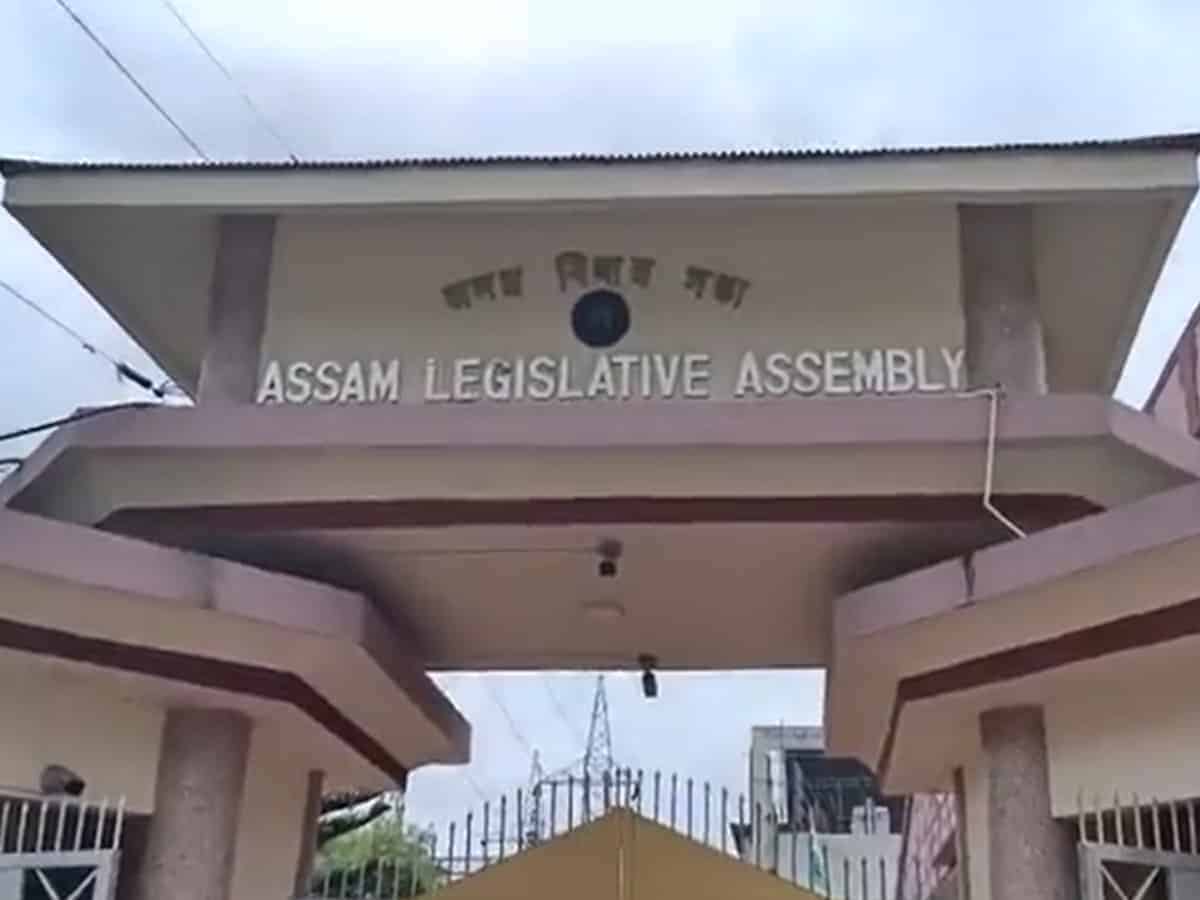The New Education Policy 2020 received both praise and criticism from various sections of the society. It talks about universalisation of education from pre-school to secondary level and also want to transform the education sector in the country. It stated that the madrassa and other religious institutions will be supported to integrate the subject and the other learning areas of the national curriculum framework into their system in order to reduce the under representation of these students in the higher education.
But the recently passed The Assam Repealing Bill, 2020 has something different to convey. The BJP led North-East Democratic Alliance [NEDA] is ruling in Assam and the passage of such a bill assumes significance against the backdrop of push for Hindutva agenda.
On December 30, 2020, the Assam assembly amid protests from the opposition passed the Bill for abolishing the Assam Madrassa Education [Provincialisation] Act , 1995 and the Assam Madrassa Education [Provincialisation of Services of Employees and the Reorganization of Madrassa Education] Act, 2018. The bill seeks to convert the state run and the private madrassa into full-fledged regular schools imparting all the subjects, not the theology alone. It also aims to scrap the government funding of the Madrassas.
The government stated that it cannot fund the existing 620 madrassa which impart religious education. When the bill was first introduced on December 28 in the assembly, the Education and the Finance Minister Himanta Biswa Sarma, said that the bill aims to make the academic environment of the state ‘secular’ and for that purpose they will also draft a bill to regulate the private madrassas. The present bill will abolish the State Madrassa Education Board. He also mentioned that the Sanskrit tolls in the state will also be converted into the regulars schools.
But interestingly when the bill was introduced there was no mention of it.
In the name of secularism, it actually destroys the secular fabric of the country.
The current bill was introduced with the objective of achieving secular vision towards all the religious institutions but on the other side it converts the madrassas into regular schools and takes away their very existence. The name madrassa will also be removed from these institutions which means that there will no longer be any institutions called ‘Madrassas’ in the state. So, how is it that the Muslims are going to have their own institutions.
And, till now there is no mention of other religious institutions and the fact that the Private Madrassa Regulation Bill is also underway is another thing to reckon with. Hence, this can be viewed as a blatant move to clampdown on the religious rights of the Muslim. It will take away the minorities rights provided under the Article 30 of the Indian constitution. The question remains as to what will happen to the religious instruction if the other subjects dominate the pedagogy. Even after the huge protest from the opposition, the bill was passed. This gives a hint to how the same type bills will be taken up in other BJP ruled states.
What does this move mean? How madrassas will sustain themselves?
This bill will scarp the government funding of the state run madrassas. Secondly, at a later date the government also wants to regulate the privately run madrassas. So what will happen to the 620 state run madrassas? Will the government fund their operation? Or will it fund only when they are converted into the regular schools? The private players cannot take over the schools as there is no provision of it. Then how will they sustain without funds?
The bill promoted under the banner of transformation is taking away the teeth of Madrassas. It is thus direct attack on the Muslims and their educational institutions.
When analysed closely, it can be taken as a good move in the long run only if it doesn’t seek to completely take away the authority of the madrassas. The imparting of other subjects and modernising the teaching methods are good steps but they should be done on the 50-50 basis. Both the religious and the subject instructions should be given a fair percentage. The capacity of teachers to teach the subjects will be increased but what about the teachers already teaching the theology.
Even their capacities be increased by providing them with proper training and the modernised teaching and learning materials. It is s good opportunity to enable the students to take up the examinations by the national testing agency but the government should provide them with proper guidance for taking up future courses. In the pre- primary years, the students should be taught the sacred law as it is the main purpose. Later, based on the interest of these students, the subjects can be taught accordingly.
BJP cannot simply wash its hands of by that it was part of the Muslim League agenda. It should clear doubts of all stake holders. It should also give details of whether it was getting any finances out of these institution and how will the administration run now. The government should state reasons on what grounds it was passed back then in 1995 and 2018. And now on what grounds it wants to shut it down.
Since it involved the question of 620 madrassas, the government should have first taken suggestions from the public groups and opposition parties. At this point of time the other parties should protest and not allow the government to bring in the private madrassa regulation bill and other bills.

